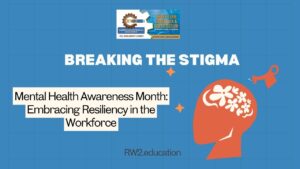
One of the most crucial documents in job hunting is your resume. Your resume’s objective is to inform employers of who you are and whether your qualifications align with the position you are looking for. Although each resume may vary depending on education, work experience, industry, and position, there are a few essential components you might want to include.
What Information Should Be in a Resume?
Although you might choose to add, remove, or change components depending on your application, here are a few of the most typical resume sections:
Your Name and Contact Information
Your name, contact information, and email address should be listed in the contact information area at the very least. It’s typical to put your name as the page’s heading, intended to make sure potential employers see your name and contact information first.You might also include a link to an online portfolio, depending on the type of job you’re applying for.
Your Resume Summary or Objective
Your resume summary or objective should be focused on briefly describing who you are and why you are qualified, which should be no longer than two sentences. Examine the job description thoroughly to find hints about which of your technical and soft skills will be most crucial and applicable. Resume summaries and objectives are somewhat different, and you should choose either one of them depending on your background and the position you want to get into. A resume summary will describe your work experience, while a resume objective states your goals and is suited for those who just graduated from high school or college.
Your Educational Attainment
Employers who demand a particular degree, certificate, or level of experience will find this area of your resume useful. You should mention your most current and pertinent education according to your degree of experience. In the education section, you should include the name and location of your school, your graduation year and the degree you obtained, and any relevant honors or achievements obtained during your education.
Professional History or Experience
This is an opportunity for you to highlight the benefits you contributed to previous companies. Beginning with your most recent position, you should list all of your most relevant professional experiences here. If you have little to no experience, you should still list your previous jobs, even if they don’t appear entirely relevant or linked. Given that some of the important soft skills you developed at a job are probably transferable to a new job and industry, potential employers can utilize that experience to get a sense of the type of employee you might be.
List Your Certifications and Relevant Skills
Include relevant technical, hard, and soft talents in this section of your resume. You can also list any certifications you’ve earned or tools you’ve mastered. The talents you list should apply to the position you’re interested in. For instance, even if you possess great skills across a variety of domains, it’s possible that not all of them would be needed for the position for which you are applying. If you are a talented cook, it might not be a good idea to list that skill when applying for a job in construction. By reading the job description, you can find out what abilities prospective employers are seeking. Write down keywords that correspond to your skills as you look through job postings, then add them as necessary to your skills section.
Top Skills Employers Are Looking For in a Resume This 2023
Adaptability
Employers are prioritizing adaptability as an important soft skill in 2023. Employers respect workers who can adjust to changes in the workplace, such as the adoption of new technologies or new methods of doing things. Mention an occasion in your professional history when you successfully adapted to a change to demonstrate your adaptability on your resume.
Collaboration Skills
In 2023, work environments will be more accommodating to remote workers, but this does not mean that peer collaboration will disappear entirely. Since working together can be more difficult, employers are seeking applicants who have great collaboration skills. Good collaborators are more likely to be able to shift these talents from physical workplaces to virtual ones and vice versa.
Creative Skills
Even though creativity may have historically been undervalued in some industries, it may now be more important than ever. It is a valuable ability for thriving in a workplace that is rapidly evolving since it allows you to generate fresh, creative ideas and solutions.
Communication Skills
Although effective communication has always been a key ability in the workplace, the variety of communication channels will make it much more necessary in 2023. We now have to deal with properly communicating via Zoom, numerous social media platforms, productivity tools, etc. in addition to speaking and emailing. Strong communication abilities are therefore essential in today’s job market.
Time Management Skills
Stronger time management skills are also necessary for employees with greater remote flexibility because they must be able to finish their daily tasks on time while working alone. Candidates that are adept at managing their time will be more successful because they can efficiently arrange their schedules, maintain productivity, and complete tasks.
Key Takeaways
Your resume is one of the first things an employer will look at when you apply to determine whether you are a good fit. If your resume is well-written, there may be a greater chance that employers looking for people like you will see it. If you want to convince them that you are the best person for the job, you must demonstrate that you possess the top abilities that companies will be seeking in 2023. Fortunately, a lot of these abilities are transferable soft skills that you can show off using a range of experiences.
To make yourself and your resume stand-out with relevant skills, you can enroll in a career and technical education program where you can obtain certifications that are extremely helpful in landing some of the most in-demand jobs. RW2 Career and Technical Education (RW2) is the right place for you. You gain or reinforce not only technical skills but also soft or transferable skills that are important while you are pursuing or while on the job. RW2 offers short-term programs such as Cybersecurity – 24 weeks, Computer-Aided Drafting and Design (CADD) – 14 weeks, and Revit for Building Information Modeling (BIM) – 15 weeks. All technical programs are complemented with a variety of soft skills and career preparation topics, including resume development and interviewing, so graduates are well-rounded and well- prepared for what’s next..
Make plans to get started in a program as soon as June 5 or August 21. Check out the Scholarships and Grants opportunities that may help you cover the cost of your education and training.Get your questions answered and more information about RW2 today!




Hey there! I’ve been following your website for some time now
and finally got the bravery to go ahead and give you a shout out from New Caney Texas!
Just wanted to say keep up the fantastic job!
We strive to consistently deliver valuable content to our readers. Looking forward to sharing more insightful posts with you.
Hello my friend! I wish to say that this article is
amazing, great written and come with almost all vital infos.
I would like to look extra posts like this .
We are thrilled to know that you found it interesting and helpful.
I am ready
can I get advice on what to get into as a new tech student? ui/ux , data analysis, or what I’m just so confused?
Hi, you can check out our FAQ https://rw2.education/faq/